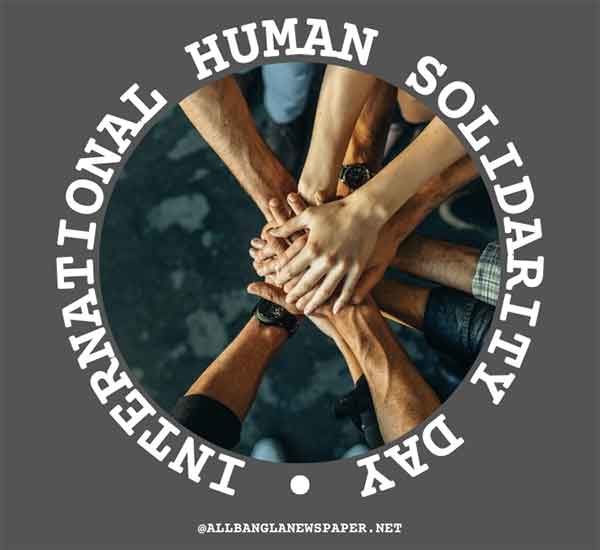
World Toilet Day is an annual event dedicated to highlighting the importance of sanitation and hygiene for everyone around the globe. Observed on November 19 each year, this significant day emphasizes the critical role toilets play in public health, human dignity, and sustainable development. While often an overlooked topic, the lack of proper sanitation remains a pressing issue for millions worldwide. This article delves into the history, importance, and actions associated with World Toilet Day while advocating for awareness and change.

The History and Purpose of World Toilet Day
World Toilet Day was established to raise awareness about the 4.2 billion people living without safely managed sanitation. Initiated by the World Toilet Organization in 2001, it became an official United Nations observance in 2013. The day aims to inspire global action to tackle the sanitation crisis and achieve Sustainable Development Goal 6 (SDG 6), which seeks to ensure the availability and sustainable management of water and sanitation for all.
From its humble beginnings, World Toilet Day has grown into a global platform for advocacy, education, and policy reform. Organizations, governments, and individuals come together annually to promote initiatives that prioritize sanitation infrastructure and hygiene education.
Why Sanitation Is a Fundamental Human Right
Sanitation is more than just access to toilets; it is a cornerstone of public health and human dignity. A lack of proper sanitation can lead to severe health issues, including diarrhea, cholera, and other waterborne diseases. These illnesses disproportionately affect children, leading to preventable deaths every year.
Moreover, inadequate sanitation often perpetuates cycles of poverty, particularly for women and girls. Without access to private, safe toilet facilities, many face risks of harassment or violence, and school attendance among girls often declines during menstruation. Recognizing sanitation as a fundamental human right is vital for empowering individuals and fostering equitable development.
Global Sanitation Statistics and Their Implications
The numbers associated with inadequate sanitation are staggering. According to the United Nations:
• Around 3.6 billion people lack access to safely managed sanitation services.
• Nearly 673 million people practice open defecation, a practice linked to severe health and environmental consequences.
• Each year, poor sanitation is responsible for hundreds of thousands of deaths due to diarrhea alone.
These figures underscore the urgent need for investment in sanitation infrastructure and education. Inadequate sanitation affects health and economies, with significant productivity losses attributed to time spent seeking private places to defecate and treat preventable illnesses.
World Toilet Day Themes and Campaigns
Each year, World Toilet Day adopts a specific theme to focus global attention on critical issues within sanitation. Past themes have included "Sustainable Sanitation and Climate Change" and "Leaving No One Behind." These themes guide educational campaigns, policy discussions, and community outreach efforts.
For instance, the 2023 theme, "Accelerating Change," underscores the need for swift, impactful action to bridge the sanitation gap. Governments and organizations are encouraged to prioritize innovative solutions, such as water-efficient toilets, community-led sanitation projects, and policies that ensure inclusivity.
The Environmental Impact of Poor Sanitation
Sanitation is not just a human health issue; it also has profound environmental implications. Open defecation and untreated waste often contaminate water sources, harming ecosystems and contributing to pollution. This contamination affects drinking water, agricultural productivity, and biodiversity.
World Toilet Day emphasizes the importance of sustainable sanitation systems that protect the environment. Technologies like eco-friendly toilets and waste-to-energy systems represent innovative solutions to reduce environmental harm while promoting resource efficiency.
Education and Advocacy on World Toilet Day
Raising awareness is a cornerstone of World Toilet Day activities. Schools, universities, and community organizations often host workshops and campaigns to educate people about the importance of sanitation. Social media plays a pivotal role in amplifying these messages, reaching millions worldwide.
Interestingly, the observance of "International Students Day A Tribute to Youth and Education" often aligns with the ethos of World Toilet Day. By empowering young minds with knowledge and encouraging them to advocate for change, a new generation can champion the cause of sanitation and hygiene for all.
Innovative Solutions to Address the Sanitation Crisis
Innovation is critical to overcoming the global sanitation crisis. Some of the most promising solutions include:
• Waterless Toilets: These are particularly valuable in arid regions where water scarcity is a significant challenge.
• Community-Led Total Sanitation (CLTS): This approach empowers communities to develop and maintain their sanitation systems.
• Waste-to-Energy Technologies: Turning human waste into bioenergy offers a sustainable way to manage waste and generate power.
Governments, NGOs, and private organizations must collaborate to implement these solutions on a larger scale.
The Role of Governments and Organizations
Governments play a vital role in addressing the sanitation crisis by enacting policies, allocating budgets, and prioritizing infrastructure development. International organizations like UNICEF and WHO work tirelessly to provide resources, training, and technical expertise to support national efforts.
Private sector partnerships also drive progress. Companies can invest in sanitation projects, develop affordable toilet solutions, and sponsor awareness campaigns, making sanitation accessible to even the most marginalized communities.
How Individuals Can Contribute
Change begins at the grassroots level. Individuals can contribute by:
• Supporting NGOs and campaigns focused on sanitation.
• Advocating for policy changes that prioritize water and sanitation projects.
• Educating themselves and others about the importance of proper hygiene.
Participating in World Toilet Day events or sharing information on social media can also amplify the message and inspire collective action.
World Toilet Day is a powerful reminder of the critical role sanitation plays in health, dignity, and sustainable development. As we strive toward achieving Sustainable Development Goal 6, collaboration among governments, organizations, and individuals is essential. By prioritizing sanitation, we not only improve lives but also create a healthier, more equitable world.





